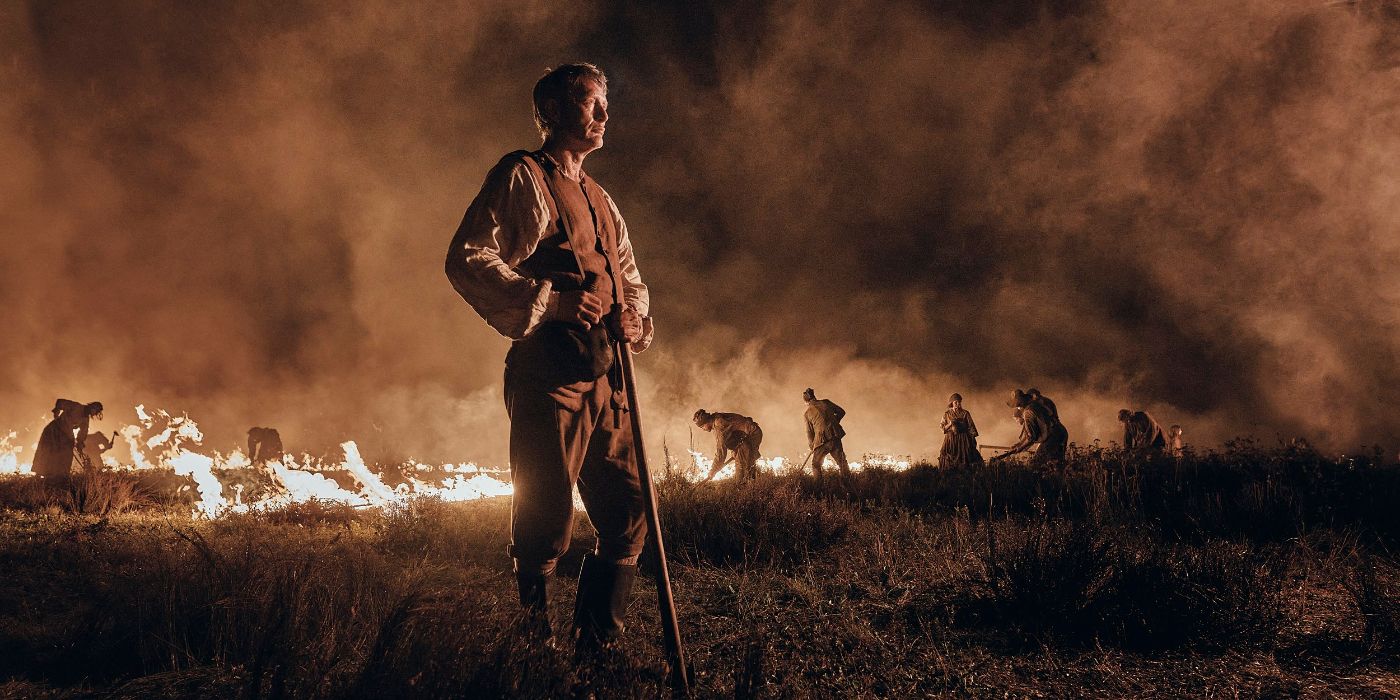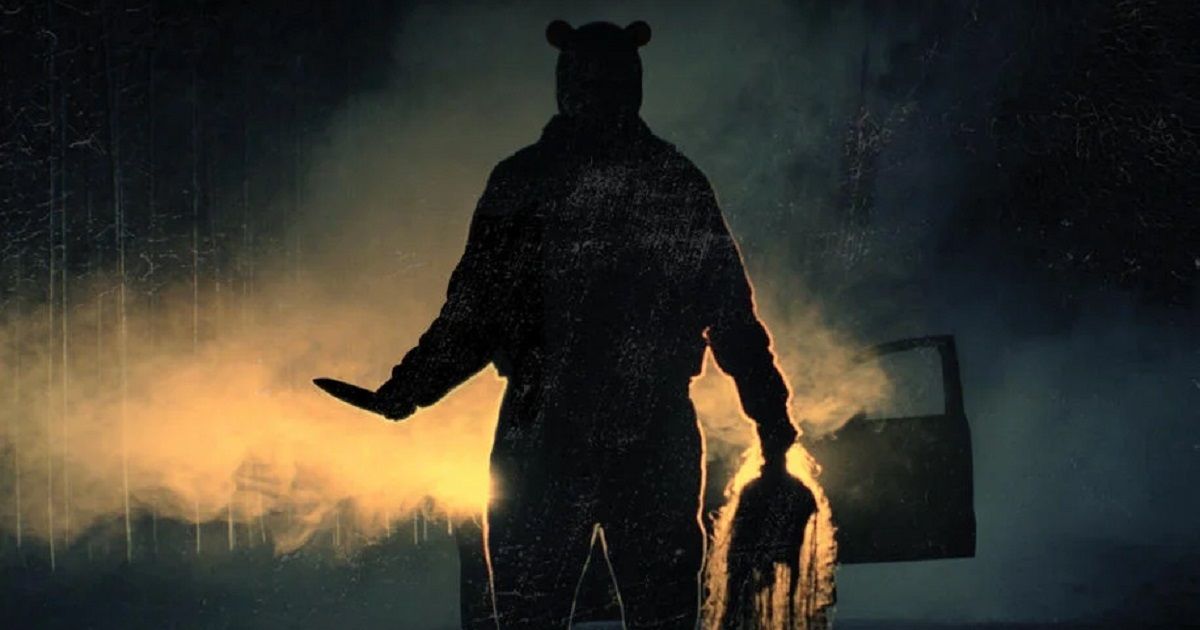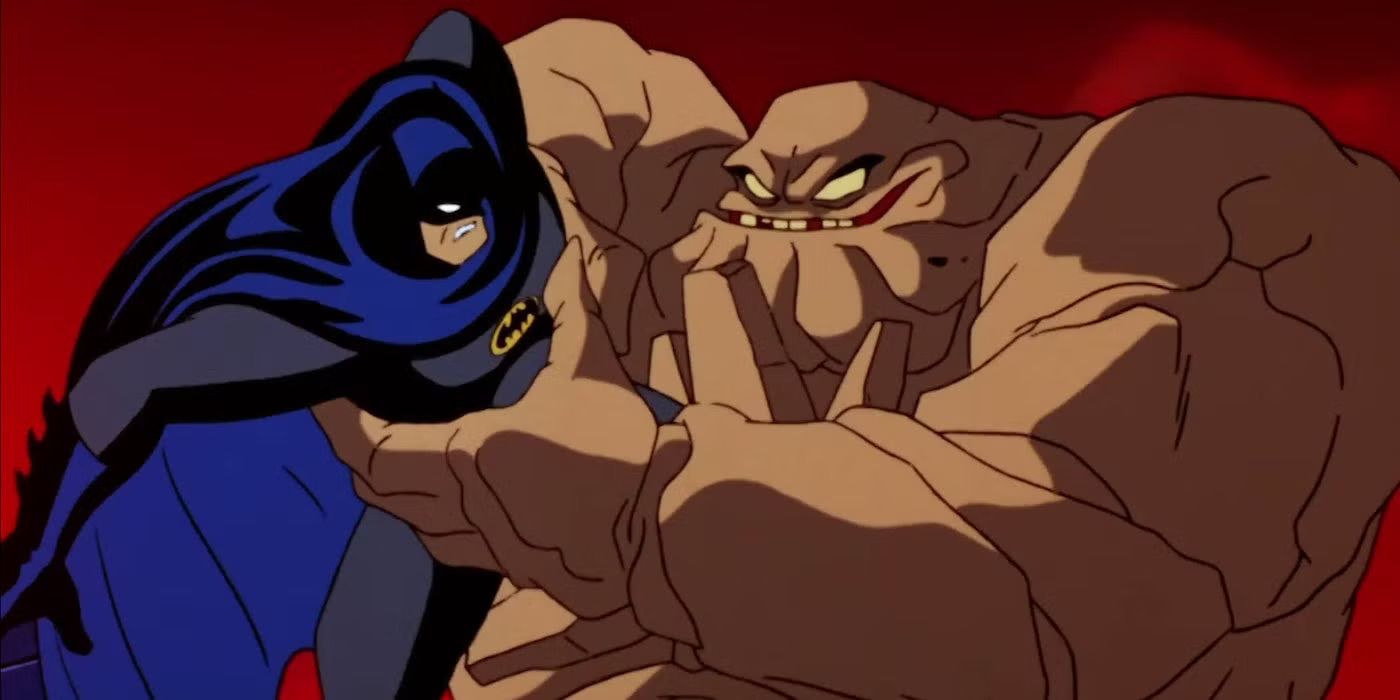Summary
- The Promised Land is a Danish film that feels more epic than most Hollywood blockbusters, with its vast landscapes, romantic subplots, and swaggering hero.
- The film explores 18th century Denmark during the transition from feudalism to capitalism, focusing on a retired soldier’s attempt to cultivate uninhabitable land using the potato.
- Mads Mikkelsen delivers a superb performance as the stubborn and ambitious Captain Kahlen, while Simon Bennebjerg shines as the villainous magistrate who opposes him.
Hollywood blockbusters may be getting longer (or perhaps bloated), but that doesn’t mean there have been many great epics in recent years. Just because a Marvel or Mission: Impossible film is 150 minutes long, it isn’t necessarily an epic. The Promised Land, a new Danish film by filmmaker Nikolaj Arcel, is only 127 minutes, but feels more epic in scope than most big studio pictures today. With its stubborn hero, vast landscapes, large supporting cast, dreamily romantic subplots, and lengthy span of time, The Promised Land is closer to David Lean’s historical popcorn epics (Lawrence of Arabia, Doctor Zhivago) than an international arthouse film.
At the same time, Arcel’s film is culturally specific, deeply Danish, and well-rooted in 18th century monarchic absolutism (a period that Arcel and his star here, Mads Mikkelsen, also explored in their 2012 film, A Royal Affair). It studies a time when feudalism was transitioning into capitalism, and people were becoming disillusioned with the hierarchies of nobility. The film begins in 1755, with a retired soldier looking to build a homestead on the notorious Jutland moorlands, an inhabitable expanse that the monarchy had hoped would yield crops and settlements.
By the time Captain Ludvig Kahlen retires, it’s generally accepted that nobody can grow anything there. He uses his pension and convinces the royal court to let him build on the Jutland and cultivate it, and if he is successful, he will be granted a title of nobility along with funds and assistance from the state. He’s initially laughed out of the room, but what do the king’s men have to lose? They believe he’s doomed to fail anyway. Little do they know, the Captain has brought back a unique food from abroad which can grow in even the harshest of conditions — the potato. So begins Ludvig Kahlen’s harsh, painful attempts to create a new life.
A Beautiful Barren Setting for a Battle of Man vs. Nature
4 /5
Release Date February 2, 2024
Runtime 2hr 7min
Pros
- The Promised Land is a grand historical epic like Spartacus.
- Rasmus Videbæk’s cinematography captures the landscape beautifully.
- Mads Mikkelsen is superb in a quietly seething role.
- Simon Bennebjerg makes for a phenomenal villain.
Cons
- The ending is a tad muted and the film is ahistorical.
Captain Kahlen heads to the desolate Jutland with all his belongings and engages in a lengthy duel with the soil. Nature and all its elements are captured beautifully by cinematographer Rasmus Videbæk, who creates soaring visuals of the Jutland throughout, along with some phenomenal closeups; every landscape is a face, and every face a landscape. Through rain and cold, Kahlen checks for water sources, digs into the ground, and builds a home. He befriends a priest at a local village (tenderly played by Gustav Lindh), who supplies Kahlen with two runaway servants who have escaped the cruel clutches of a local magistrate, Frederik Schinkel (played with delicious evil by Simon Bennebjerg).
Related: The Best Movies With a ‘Character Against Nature’ Type of Conflict
It’s this magistrate who, along with nature itself, becomes Kahlen’s greatest foe. Despite Kahlen’s paperwork, Schinkel (who insists with humorous pomposity that people refer to him as “de Schinkel”) claims to own the Jutland, secretly fearing the loss of his control if settlements develop there and if Kahlen becomes competing nobility.
Magnolia Pictures
Schinkel embodies nihilistic hedonism, telling Kahlen that chaos reigns as the only force in the universe. Kahlen is a firm believer in meritocracy, believing that if he works hard, he will honestly climb the aristocratic hierarchy and succeed in life. Schinkel maliciously reminds him that wherever there is power, there is no meritocracy — the people at the top have kicked the social ladder down behind them.
With the help of the escaped servants and the priest, Kahlen makes advances in the Jutland, but every step forward is contested by Schinkel. Kahlen has tunnel vision, obsessively focusing on his one goal and refusing to let anyone stop him. He’s an honorable and fair man in a dishonest and unfair world, but he’s also deliriously egotistical, risking the lives of others to pursue his own success. More and more people are drawn into his struggle, from a band of Romani travelers and fearful serfs to arriving settlers and a young gypsy child he essentially adopts. Like the classic Hollywood epics, the film incorporates romance, action, drama, and tragedy to tell a big story about a man and his moment in history.
Mads Mikkelsen Is a Danish God and Simon Bennebjerg Is His Devil
Mads Mikkelsen shines as Captain Ludwig Kahlen. He’s a man of few words, but the character is defined more by the way he carries himself and the emotions hidden in his eyes. Mikkelsen is perfect for this. His strange, brutal beauty becomes believable throughout the runtime; he seems like a soldier and then a farmer, and he seems like a desperate man longing for honor and nobility in the eyes of society. He’s cold and determined, but also deeply moral, and his understanding of the world clearly develops throughout the film.
Mikkelsen takes the haughty charm of his titular character in Hannibal, combines it with the quiet dignity of his work in films like The Hunt, and embraces the physicality of the Pusher films, combining them all to create an ethically ambiguous, wonderful character. The sparseness of his dialogue makes each word more meaningful, and his mastery of the man’s gestures and piercing glances enhances the film greatly. Of course, the movie dramatizes the story of Kahlen greatly and takes a ton of historical liberties to create a more entertaining version than a realistic one. If viewers demand historical accuracy, they won’t find it here.
Related: Best Mads Mikkelsen Movies, Ranked
The aforementioned Bennebjerg is also excellent as Schinkel. He has an inherent lunacy to him, but there’s also a philosophical foundation to his misanthropy and malice. He truly believes in power. He’s a misogynist, a murderer, a glutton, a liar, a thief, and a bully, essentially one of the most abhorrent characters in recent memory, and Bennebjerg obviously relishes the chance he has here. He creates a multidimensional villain, a pathetic young brat who demands his domination over everything and everyone, and meets his match with Kahlen.
They Don’t Want You in the Promised Land
Aside from simply being an excellent popcorn epic, The Promised Land has an important message that remains applicable to this very day. Kahlen has a moral foundation, but the more he chases his ambitions, the more he compromises his humanity. He is a poor man, treated terribly by the upper class, but instead of fighting against the system which subjugates him, he wishes to become part of the upper class itself. By believing in the social hierarchy and respecting the concept of nobility, Kahlen is fighting to become the thing he hates. It’s akin to a leftist climbing the corporate ladder.
When MovieWeb spoke to director Nikolaj Arcel, he expanded on this theme. “The most important thing for me, thematically, was that you really have to be careful how much of your life you spend trying to obtain certain goals,” explained Arcel. “If that’s all you’re about, obtaining certain goals, then you’re not going to win. You’re not going to sort of conquer what life is really about. And I think that’s what I really want people to think about. He’s so close to losing everything that’s important, just because he’s so driven and ambitious and only is thinking about one thing.” He continued:
I think that a lot of people can sort of recognize that. It’s the classic ‘lying on your deathbed’ thing, thinking about what was important in life and then suddenly realizing, “Oh my god, I wasted so many years trying to achieve this or that, and it means nothing.” What really means something is the love that I have for my children, or my wife, or my husband, or my parents, or my family.
The Promised Land will make you remember what really matters, and in the most entertaining of ways. The film is now in theaters from Magnolia Pictures. Check out our interview with Arcel below.
You can view the original article HERE.














.jpg)














